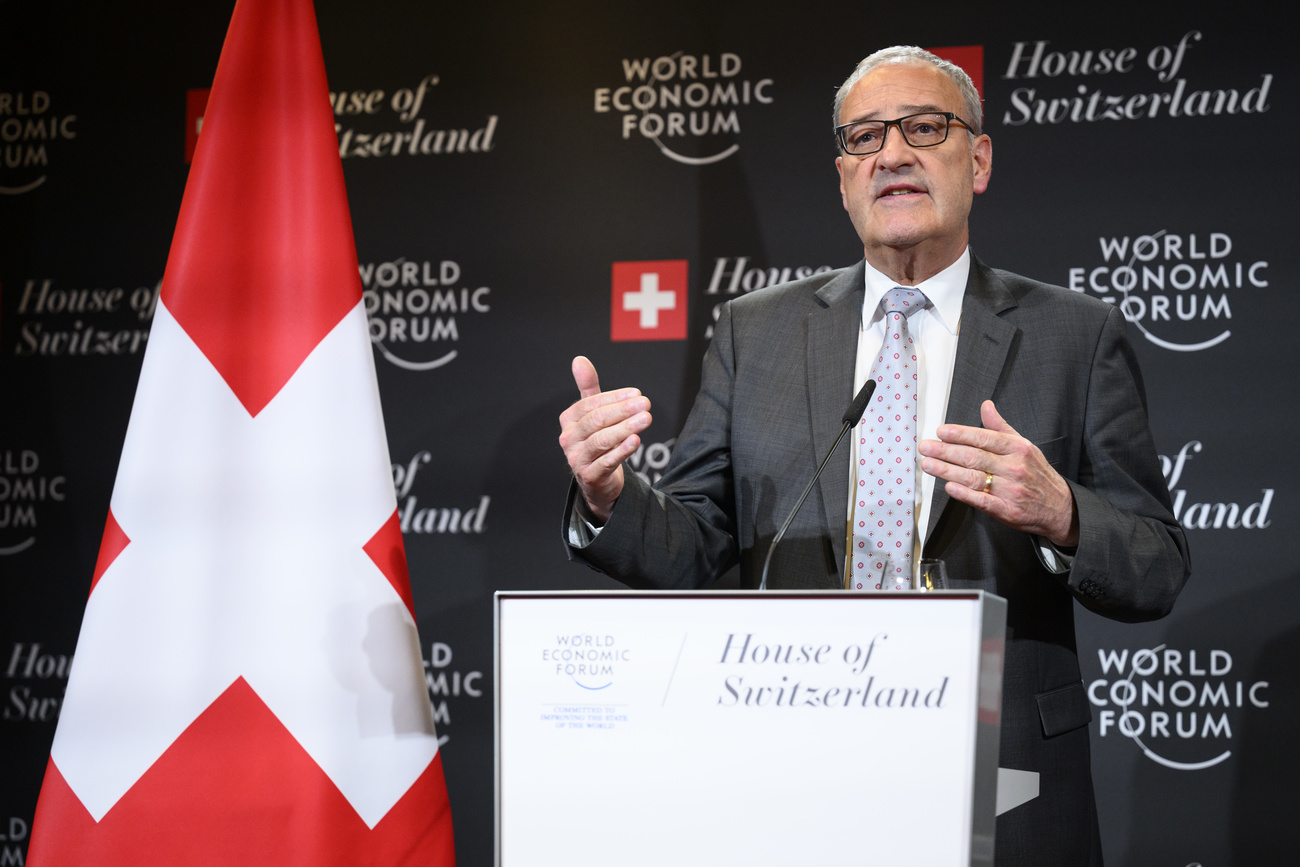
With EU deal stuck, Switzerland courts other partners

Switzerland is seeking out stronger partnerships with other nations, including the United States, in the absence of an agreement with the European Union.
“This whole strategy was launched partly because of the deadlock with the European Union,” said Swiss Economics Minister Guy Parmelin in an interview published on Saturday in the Le Temps newspaper. “We cannot sit idly by.”
“As long as the situation is blocked, we must look for other solutions to maintain our prosperity in terms of research, science and the economy,” Parmelin said.
A starting point for that effort was the World Economic Forum held in January in the elite resort of Davos. Discussions are underway with the United Kingdom, Canada and the United States, he says. Bern already inked a pharmaceuticals agreement with Washington in January.
Parmelin is also keen to see whether an agreement on Mercosur, a common market project involving several Latin American nations, can finally be reached.
He said the EU made a mistake by excluding Switzerland and Great Britain from programmes like Horizon Europe. “It weakens the European continent, it does us a disservice and ultimately benefits North America or Asia,” he said.
Lost research funding
Switzerland broke off negotiations with Brussels on an institutional framework agreement in May 2021. The EU then classified Switzerland as a third country, not associated with Horizon. As a result, Swiss researchers and companies can no longer coordinate European projects. And research can no longer obtain grants from the European Research Council.
Horizon Europe in 2020 was the second most important public source of funding for Swiss researchers, after the Swiss National Science Foundation.
Electricity woes
Researchers are not the only ones impatiently waiting for an end to the impasse in Swiss-EU relations. The chairman of industry association Swissmem calls for an agreement in the field of electricity by spring 2024. According to Martin Hirzel, quoted in the NZZ newspaper, the government should resume formal negotiations no later than March.
Time is off essence, according he president of the leading association of the machinery, electrical equipment and metal industry. Swissmem wants to ensure that issues are resolved before the European Parliament is renewed in 2024 and the mandate of the current European Commission comes to an end.
Market access
If Switzerland had to wait until 2025 to conclude an agreement, Hirzel fears electricity imports will become difficult. Securing electricity supply is the second most important issue in the EU dossier, after unhindered market access, he said. With an export share of more than 55%, Europe is by far the most important customer of the MEM sector.

More
Will Switzerland sort out its differences with the EU in 2023?

In compliance with the JTI standards
More: SWI swissinfo.ch certified by the Journalism Trust Initiative



























You can find an overview of ongoing debates with our journalists here . Please join us!
If you want to start a conversation about a topic raised in this article or want to report factual errors, email us at english@swissinfo.ch.